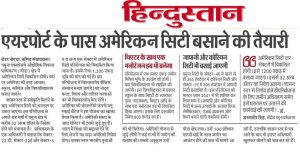Stamp duty and property registration charges are an integral part of buying property in Noida and Greater Noida. It is essential to understand these charges before purchasing a property to avoid any confusion or financial setbacks. Stamp duty is a tax levied by the government on the purchase or transfer of property, while property registration charges are the fees paid to register the property with the government.
The stamp duty and property registration charges in Noida and Greater Noida are determined by the state government and are subject to change periodically. These charges are calculated as a percentage of the property value and can vary based on the gender of the property owner. It is important to note that these charges are non-negotiable and must be paid in full to complete the property transaction. Understanding the current rates and charges can help buyers plan their finances accordingly and avoid any last-minute surprises.
Understanding Stamp Duty
Definition and Legal Framework
Stamp Duty is a tax levied by the government on the purchase or transfer of property. It is a form of direct tax and is governed by the Indian Stamp Act, 1899. The Act provides a legal framework for the collection of stamp duty and outlines the various rules and regulations related to it.
The stamp duty is payable on the market value of the property or the consideration paid for the property, whichever is higher. The rate of stamp duty varies from state to state and is determined by the state government.
Calculation of Stamp Duty in Noida
In Noida, the stamp duty is calculated as a percentage of the property value. As of 2024, the stamp duty rate in Noida is 7% for men and 7%, minus Rs. 10,000 for women. For joint ownership, the stamp duty rate is 7%, minus Rs. 10,000.
For example, if a man purchases a property worth Rs. 50 lakh in Noida, the stamp duty payable would be Rs. 3.5 lakh (7% of Rs. 50 lakh).
Factors Affecting Stamp Duty Rates
The stamp duty rates in Noida are affected by several factors, including the location of the property, the type of property, and the purpose of the transaction. Stamp duty rates are generally higher in urban areas than in rural areas. Similarly, stamp duty rates for commercial properties are higher than for residential properties.
So, understanding the stamp duty is essential for anyone looking to buy or transfer property in Noida. It is important to calculate the stamp duty correctly to avoid any legal issues in the future.
Property Registration Process
Documentation Required
Before registering a property in Noida or Greater Noida, the buyer must ensure that they have all the necessary documents. These include:
- Sale deed or title deed
- Identity proof of the buyer and seller
- PAN card of the buyer and seller
- Address proof of the buyer and seller
- No objection certificate (NOC) from the local authority
- Property tax receipts
- Encumbrance certificate
Step-by-Step Procedure
The property registration process in Noida and Greater Noida is carried out by the Sub-Registrar. The following is the step-by-step procedure for property registration:
- Verification of documents: The Sub-Registrar verifies all the required documents submitted by the buyer and seller.
- Payment of stamp duty: The buyer must pay the stamp duty and registration charges online or offline as per the prevailing rates.
- Execution of sale deed: The buyer and seller must sign the sale deed in the presence of two witnesses.
- Registration of sale deed: The Sub-Registrar registers the sale deed and issues a registration certificate.
Role of Sub-Registrar
The Sub-Registrar is responsible for verifying the documents submitted by the buyer and seller, collecting stamp duty and registration charges, and registering the sale deed. The Sub-Registrar also issues the registration certificate to the buyer. It is important to note that the registration certificate is a legal proof of ownership of the property.
Registration Charges
Current Registration Fees
The registration charge for property registration in Noida and Greater Noida is currently set at 1% of the property value. For example, if the property value is Rs 50 lakhs, the registration charge would be Rs 50,000. It is important to note that the registration charge is calculated based on the higher value of either the property price registered or the circle rates/ready reckoner rate.
Additional Charges and Levies
Apart from the registration charge, there may be additional charges and levies that need to be paid during the property registration process. These charges may include stamp duty, transfer duty, and other taxes. The stamp duty is calculated as a percentage of the property value and varies depending on the state and city where the property is located. In Noida and Greater Noida, the stamp duty is currently set at 7% of the property value.
It is also important to note that there may be additional charges and levies that need to be paid depending on the type of property being registered. For example, if the property is a commercial property, there may be additional taxes and charges that need to be paid.
Overall, it is important for property buyers to be aware of the various charges and levies that need to be paid during the property registration process. By understanding these charges, buyers can better plan their finances and ensure that they have enough funds to complete the registration process.
Stamp Duty Concessions
Stamp duty concessions are available for certain categories of buyers in Noida and Greater Noida. This section will discuss the two main categories of buyers who are eligible for stamp duty concessions.
Women Buyers
Women buyers are eligible for a stamp duty concession of 1% in Noida and Greater Noida. This concession is applicable irrespective of the property value and is a significant benefit for women who wish to purchase property in these areas. Women buyers can save a substantial amount of money on stamp duty charges by taking advantage of this concession.
Joint Ownership
When property is purchased jointly by a man and a woman, they are eligible for a stamp duty concession of 1% in Noida and Greater Noida. This concession is applicable irrespective of the property value and is a significant benefit for couples who wish to purchase property in these areas. Joint owners can save a substantial amount of money on stamp duty charges by taking advantage of this concession.
It is important to note that the stamp duty concession is available only to joint owners who are a man and a woman. Joint ownership by two men or two women does not qualify for this concession.
In short, stamp duty concessions are available for women buyers and joint owners in Noida and Greater Noida. These concessions can help buyers save a significant amount of money on stamp duty charges. It is important for buyers to be aware of these concessions and take advantage of them when purchasing property in these areas.
Impact of Market Value on Charges
The market value of a property is a critical factor that influences the stamp duty and property registration charges in Noida and Greater Noida. The higher the market value of the property, the more the charges that are levied.
Assessment of Property Value
The market value of a property is determined by the district administration. The district administration assesses the property value based on various factors such as location, amenities, size, and age of the property. The assessment of the property value is crucial as it determines the stamp duty and property registration charges.
Circle Rate and Its Influence
Circle rate is the minimum rate at which a property can be registered in a particular area. It is set by the state government and is revised from time to time. The circle rate plays a significant role in determining the stamp duty and property registration charges.
If the market value of the property is higher than the circle rate, the stamp duty and registration charges will be calculated based on the market value of the property. On the other hand, if the market value of the property is lower than the circle rate, the stamp duty and registration charges will be calculated based on the circle rate.
It is essential to note that the circle rate is not the same as the market value of the property. The market value of the property can be higher or lower than the circle rate, depending on various factors. Therefore, it is crucial to assess the market value of the property accurately to determine the stamp duty and property registration charges.
The market value of a property is a crucial factor that influences the stamp duty and property registration charges in Noida and Greater Noida. The assessment of the property value and the circle rate play significant roles in determining the charges.
Legal Implications of Non-Payment
Failure to pay stamp duty and registration charges on time can have serious legal implications. In this section, we will discuss the possible penalties and fines, as well as disputes and resolutions that may arise from non-payment.
Penalties and Fines
According to Section 33 of the Indian Stamp Act, 1899, any instrument that is not duly stamped or insufficiently stamped is inadmissible in court as evidence. This means that if a property transaction document is not stamped or is under-stamped, it cannot be used as evidence in a court of law. In addition, the individual responsible for paying the stamp duty and registration charges may be subject to penalties and fines.
The penalties for non-payment or underpayment of stamp duty and registration charges vary depending on the state and the amount of the shortfall. In Noida and Greater Noida, the penalty for non-payment or underpayment of stamp duty is 2% per month of the deficient amount, up to a maximum of 200% of the deficient amount. In addition, the person responsible for paying the stamp duty may be subject to imprisonment for up to six months.
Disputes and Resolutions
Disputes may arise when there is a disagreement between the parties involved in a property transaction regarding the payment of stamp duty and registration charges. In such cases, the parties may seek resolution through the court system. The court may order the payment of stamp duty and registration charges, as well as any penalties or fines that may be applicable.
In addition, the parties may choose to resolve the dispute through alternative dispute resolution methods such as mediation or arbitration. These methods may be less expensive and time-consuming than going to court, and may result in a mutually acceptable resolution.
It is important to note that non-payment or underpayment of stamp duty and registration charges can have serious legal consequences. It is advisable to seek the advice of a legal professional to ensure that all legal requirements are met and that the transaction is conducted in a lawful manner.
Recent Amendments and Updates
Changes in Stamp Duty Rates
In 2024, the stamp duty rates in Noida and Greater Noida were revised. The stamp duty is calculated as a percentage of the property value. According to housing.com, the stamp duty for a property worth Rs. 10 lakh is 7% of the property value, while the registration charge is 1% of the property value. For example, if a property is worth Rs. 35 lakhs, the stamp duty payable would be 7% of Rs. 35 lakhs, which is Rs. 2,45,000.
Revised Registration Procedures
The registration procedures for properties in Noida and Greater Noida have also been revised. According to magicbricks, the Integrated Grievance Redressal System, UP (IGRSUP) portal is used for registration. To access the portal, users need to click on the “New Register” button and enter their district, mobile number, password, and captcha. Existing users can click on the “Pre-Register” button on the IGRSUP portal.
Once a user is registered, they can request a refund on stamp duty and registry charges in Greater Noida and Noida. The process is simple and can be completed online. Users can also check the status of their refund request on the IGRSUP portal.
Online Payment and E-Stamping
E-Stamping Procedure
In Noida and Greater Noida, property buyers can avail the e-stamping facility for paying stamp duty and registration fees. The e-stamping procedure is simple and can be completed online. The first step is to register on the e-stamping portal of the Uttar Pradesh government. After registration, the buyer needs to fill out the e-stamp application form and make the payment online. Once the payment is made, the e-stamp certificate is generated and can be downloaded from the portal. The e-stamp certificate is a secure way of paying stamp duty and registration fees, and it eliminates the need for physical stamp papers.
Benefits of Online Payment
Online payment of stamp duty and registration fees offers several benefits to property buyers. Firstly, it saves time and effort as buyers can complete the payment process from the comfort of their homes. Secondly, it is a secure way of making payments as it eliminates the need for physical stamp papers, which can be lost or stolen. Thirdly, it ensures transparency in the payment process as buyers can track their payment status online. Lastly, it is a convenient way of making payments as buyers can pay using various payment modes such as net banking, credit/debit cards, and mobile wallets.
The e-stamping facility and online payment of stamp duty and registration fees have made the payment process hassle-free and secure for property buyers in Noida and Greater Noida.
Expert Advice and Consultation
Hiring a Property Lawyer
When it comes to buying property in Noida and Greater Noida, it is always advisable to hire a property lawyer. A property lawyer can provide legal guidance and ensure that the transaction is smooth and hassle-free. They can also help in drafting and reviewing legal documents, such as sale deeds, agreements, and contracts, to ensure that they are legally binding and in compliance with the law.
Moreover, a property lawyer can help in resolving any legal disputes that may arise during the transaction. They can also provide guidance on stamp duty and property registration charges in Noida and Greater Noida. It is important to choose a lawyer who is experienced in property law and has a good track record.
Consulting Real Estate Experts
In addition to hiring a property lawyer, it is also advisable to consult with real estate experts. Real estate experts can provide valuable insights into the property market in Noida and Greater Noida. They can help in identifying lucrative investment opportunities and provide guidance on property prices, market trends, and legal requirements.
Real estate experts can also provide guidance on stamp duty and property registration charges in Noida and Greater Noida. They can help in understanding the various charges and fees involved in the transaction and ensure that the transaction is carried out smoothly and efficiently.
It is important to choose a reputable and experienced real estate expert who has a good track record in the industry.




